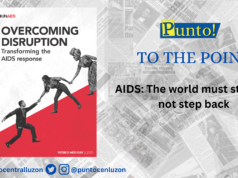DEATH PENALTY does not effectively deter crime. What deters crime is the certainty of conviction and the imposition of punishment.
What the country needs, therefore, is a reform of the criminal justice system with the eradication of crooked, corrupt and unprincipled practices in law enforcement agencies, judiciary and penal systems.
To reimpose death penalty in the face of these monstrous problems in our criminal justice system is a violation of the fundamental rights. Consequently, the Church teaches, in the light of the Gospel, that “the death penalty is inadmissible because it is an attack on the inviolability and dignity of the person” (Catechism of the Catholic Church 2267).
Death Penalty is biased and unfair. Much like the dreaded war on drugs that victimizes mostly the poor, death penalty unfortunately legalizes simply the extermination of the marginalized in our society. Fairness, above all, requires competent counsel for the defendant. But studies suggest that wrongful convictions of poor defendants are high because they cannot afford to hire the best counsel, thereby, settling merely with inept and underfunded defense both during trial and appeal.
Death Penalty is an unjustified form of retribution. We believe that only God has the right to take life away from us. Hence, we condemn criminals who took the lives of their victims and they must be punished for it. Punishment, however, should not anymore include death because there are other means already available to punish criminals and to protect society from them…
The fallibility and imperfection of our justice system is enough reason to reject death penalty. There are many indicators suggesting that miscarriage of justice is unavoidable: erroneous or perjured testimony, defective police work or operation, forced confessions, faulty evidences, corrupt judges, community pressure and the defendant’s previous criminal record or status.
When the State approves, orders and carries out the execution of a criminal under these circumstances, it lends support to the destructive side of a fl awed system.
As pastors, we recognize the heartache, distress and anguish experienced by victims of violent crimes, and we deeply empathize with them. We feel the anger and despair of victims’ families who are ignored by the criminal justice system and even at times by the Church. We preside over the funeral rites for victims. We comforted their bereaved families and even assist them in their needs. Indeed, they deserve our compassion, understanding, love and support. We want to help them in their search for justice.
However, our support for victims and their families does not oblige us to push for the re-imposition of the penalty of death. Instead, we call the attention of our leaders and lawmakers to make every effort to establish a system of justice that brings restoration and harmony and not death.
(Excerpted from the statement of the Clergy of the Archdiocese of Manila on the proposed reimposition of the death penalty, 4 August 2020)





